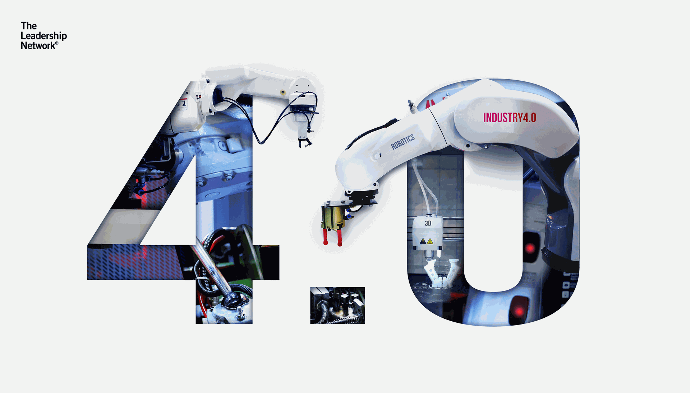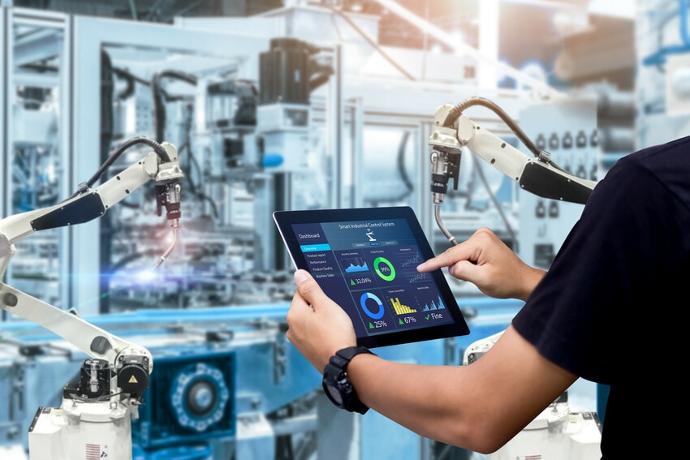In recent years, the manufacturing industry has witnessed a profound transformation with the advent of Industry 4.0. This new wave of automation, driven by advanced technologies and digitalization, is revolutionizing manufacturing processes, ushering in a new era of efficiency, productivity, and agility. Welcome to the world of Industry 4.0, where automation is reshaping the future of manufacturing.

The Rise of Industry 4.0
Industry 4.0 represents a paradigm shift, encompassing the convergence of cyber-physical systems, the Internet of Things (IoT), cloud computing, and artificial intelligence. These technologies work in tandem,
enabling the creation of smart factories, where machines, systems, and processes are interconnected and communicate seamlessly. This interconnectedness allows for real-time data exchange and advanced analytics, leading to data-driven decision-making and optimization.
Benefits of Industry 4.0 Automation
Enhanced Efficiency: Industry 4.0 automation streamlines manufacturing processes, eliminating manual bottlenecks and optimizing operations. Intelligent machines and robotics perform repetitive tasks with precision, speed, and consistency, minimizing errors and reducing production time.
Increased Productivity: Automation empowers manufacturers to achieve higher levels of productivity. With machines working round the clock, production cycles can be expedited, leading to faster time-to-market and increased output capacity. Additionally, predictive maintenance enabled by Industry 4.0 technologies ensures machines are optimized for uptime, reducing costly downtime.
Improved Quality Control: Industry 4.0 automation facilitates real-time monitoring and data collection throughout the production process. By analyzing this data, manufacturers can identify deviations, spot quality issues, and take corrective measures promptly. As a result, product quality is enhanced, customer satisfaction is increased, and waste is minimized.
Agile and Flexible Manufacturing: Industry 4.0 enables manufacturers to respond quickly to changing market demands. With interconnected systems, they can seamlessly adapt production lines to produce different products or variants, without the need for time-consuming retooling or reconfiguration. This flexibility allows businesses to stay competitive in dynamic markets.
Safer Work Environments: Automation reduces the reliance on manual labor for hazardous or repetitive tasks. By automating such processes, the risk of accidents and injuries can be significantly reduced, creating safer work environments for employees.
Sustainability and Resource Efficiency: Industry 4.0 automation optimizes resource consumption by intelligently monitoring energy usage, reducing waste, and ensuring efficient use of materials. This focus on sustainability aligns with global environmental goals and helps manufacturers reduce their carbon footprint
Embracing the Future
To thrive in the era of Industry 4.0, manufacturers must embrace automation and harness the power of advanced technologies. Adopting smart manufacturing systems, integrating IoT sensors, leveraging cloud computing,

and implementing artificial intelligence and machine learning algorithms are key steps toward realizing the potential of Industry 4.0.
However, embracing Industry 4.0 goes beyond technology adoption. It requires a shift in mindset, a commitment to upskilling the workforce, and fostering a culture of innovation and continuous improvement. Collaboration among industry stakeholders, including manufacturers, technology providers, and policymakers, is essential to drive the widespread adoption and success of Industry 4.0.
Industry 4.0 automation is transforming manufacturing processes, revolutionizing the way products are designed, produced, and delivered. The integration of advanced technologies empowers manufacturers to achieve new levels of efficiency, productivity, and flexibility. By embracing Industry 4.0, businesses can unlock a world of opportunities, driving growth, and staying competitive in the ever-evolving global marketplace. The future of manufacturing is here, and it's driven by Industry 4.0 automation.